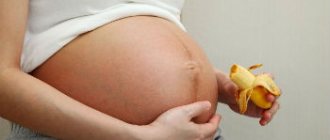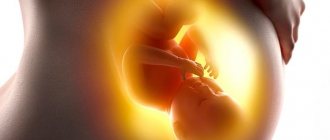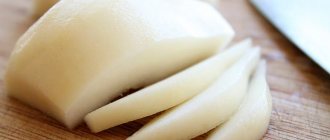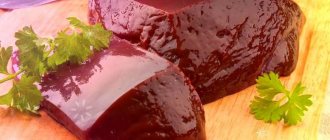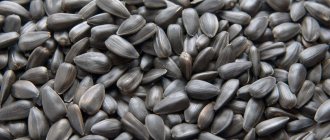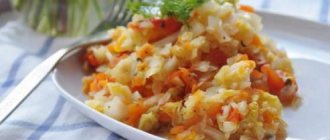Certain restrictions in the diet of a woman in labor force her to be attentive to the preparation of the menu, especially regarding the inclusion of fruits in it, because many of them are allergens. Therefore, the possibility of including bananas in the diet while breastfeeding is also questionable. The calorie content and the reaction of the gastrointestinal tract of both the mother to such a product and the baby’s body are of concern.
In fact, the fruit, which can be bought all year round, is a storehouse of vitamins and microelements, so it is not recommended to exclude it from the diet. But you need to eat bananas carefully.
More articles related to your question
- Seeds during breastfeeding are not only possible, but also necessary! But a little
- Breastfeeding and sedatives: is it possible to take and what sedatives are acceptable during lactation?
- Is pregnancy possible while breastfeeding?
- Using ACC during breastfeeding: doctors’ recommendations on how to take it correctly without harm to the baby
- Apples while breastfeeding: when, what and how to include such fruits in the diet
- How to treat a sore throat while breastfeeding: choosing effective remedies and the possibility of using medications
Composition and properties of tropical fruit
- The composition of a banana certainly determines its properties and effects on the human body:
A large amount of B vitamins is a means of improving memory. The same substance promotes concentration, and in combination with magnesium acts as a sedative and stabilizing agent. - Together with the vitamin complex, the amino acid tryptophan normalizes sleep, which is especially important for a woman in labor, because this is not the calmest period in her life. Bananas while breastfeeding become a panacea for a number of problems that will pass over time, but for now it will be difficult for the mother to cope with them on her own.
- The same substance normalizes appetite, making it possible to feel full for quite a long time.
- Serotonin is a hormone of pleasure known to everyone, so one banana eaten also improves mood, which will help the mother in labor cope with depression and fatigue after childbirth.
- Vitamin C is a familiar antioxidant that improves immunity. It also helps to absorb elements such as calcium and chromium, which are necessary for the normal development of the baby. And he will receive the full complex from mother’s milk.
- The presence of pectin determines the benefits of bananas for the digestive system. They normalize stool and help cope with intestinal diseases, including ulcers.
- The rich mineral complex normalizes blood pressure, invigorates, and saturates well.
Given the properties of banana, it is recommended as a hearty snack between breakfast and lunch. Moreover, it is a hypoallergenic product, so it usually does not cause a negative reaction in either the mother or child.
But you should still remember to be careful: a banana can both strengthen and act as a laxative. And it is almost impossible to predict exactly what effect the fruit will have on you or the baby.
Recipes
To diversify the menu of a young mother, you can prepare a variety of dishes with the addition of your favorite fruit.
Tender banana salad with cottage cheese
To prepare it you need to take:
- 2-3 apples;
- 2 bananas;
- 200 grams of low-fat cottage cheese;
- a little sour cream.
First you need to cut the fruits into small cubes, then add cottage cheese and sour cream to them. Mix all ingredients. If desired, you can add a little sugar.
Banana porridge
To prepare this porridge you need to take:
- 100 grams of any cereal;
- 1 banana;
- A little butter and sugar.
First you need to boil the porridge, add butter and sugar to taste. Then grind the banana in a blender and add it to the porridge.
Microwave cupcake
To prepare it you need to take:
- 1 banana;
- half a glass of milk;
- 1 cup flour;
- 2 tablespoons sugar;
- 50 grams of butter;
- half a teaspoon of soda.
Mix all products in a bowl. Place the resulting dough in a mold and bake in the microwave for about 30 minutes.
Cocktail
For it you will need:
- 1 banana;
- a glass of low-fat yogurt.
First you need to grind the banana in a blender and then mix it with yogurt. It is better to drink this cocktail half an hour before breastfeeding.
When can you try bananas?
Despite the difference of opinion among doctors, most mothers are interested in whether it is possible to eat bananas while breastfeeding in the first month. In this regard, is it possible to answer that any products in a nursing diet should be treated with caution. And you can try the first fruit already in the maternity hospital, but doctors recommend stopping at just one piece. This will be the norm for eating bananas every day, otherwise side effects may occur - indigestion, an allergic reaction in the baby, bowel dysfunction, which most often happens in the baby, and not in the mother.
When including any fruits in the diet of a woman in labor, you should always remember to be careful. But banana is considered universal for a nursing mother’s menu; it is not for nothing that it is called the fruit of wise people - musa sapientum. By using such a product wisely, you can get the maximum benefit without risking the health of your little one.
Is it possible to eat bananas in the first month after giving birth?
After giving birth, a woman is advised to carefully choose her diet. All harmful foods that could cause an allergic reaction in a child should be excluded from the diet. If a woman ate bananas during pregnancy, then during breastfeeding she can continue to eat them, but with some caution so that the child does not have a negative reaction to this product.
Fruits should be introduced into the diet in small portions, and the child should be monitored for 2 days. Bananas can cause discomfort in children's bodies. If the baby’s stool is not disrupted and no rashes appear on the skin, then the mother can eat a little more after 2 days.
Otherwise, you will have to temporarily stop eating this fruit until the child is 1 month old.
If you have problems with your stool
When problems with stool begin after childbirth, which, of course, is not uncommon, women in labor wonder whether a nursing mother can have a fruit that can strengthen her. In fact, the pectin contained in the pulp of this fruit normalizes digestion in general. The reaction of a healthy body is usually predictable:
- for diarrhea, banana strengthens;
- normalization of stool occurs during constipation.
Accordingly, such a fruit has a cumulative beneficial effect. During diarrhea, it also retains moisture, preventing dehydration.
If you have difficulty with bowel movements, it is not recommended to eat unripe fruits, since they contain a lot of starch, which can strengthen the stomach.
Bananas benefits for nursing mothers
In addition to the fact that these fruits are sweet and nutritious, they have many beneficial properties:
- Quickly saturate the body. Can help restore strength and add energy. After 2 eaten fruits, full two-hour activity begins. This is thanks to slow carbohydrates, which take a long time to break down and give you a feeling of fullness.
- Fruits contain tryptophan. It can improve mood, which is important for a nursing mother who does not want to fall into postpartum depression.
- Useful for the digestive system, as it will begin to work better. The starchy, viscous consistency acts very gently on the walls of the intestines and stomach.
- Bananas during breastfeeding help increase hemoglobin, which is often below normal.
- With a large amount of sugars and starch, the fruits have a low calorie content: 89 calories per 100 grams.
- Helps strengthen and improve the condition of hair, nails, and skin. And a young nursing mother often has problems with this, since the baby receives more vitamins through breast milk.
- Helps cope with stress, improve sleep, calm the nervous system.
- The record potassium content has a beneficial effect on the heart muscle and blood vessels.
Side effects
When assessing all the risks when including a new product in the diet, it is important to consider that many side effects occur not in the mother, but in the baby. Therefore, you should promptly respond to possible difficulties:
- High levels of sugar in such fruits can lead to increased gas formation, bloating, and colic.
- The baby may become constipated, while the woman in labor will feel comfortable.
- If a rash develops on the baby's skin, you should also temporarily exclude bananas from the diet, and try again in a month or two.
However, when asked whether bananas can be consumed while breastfeeding, doctors usually warn about the presence of contraindications. Such fruits not only affect lactation and feeding a newborn, but can have a negative effect on a woman’s body if she has diseases such as diabetes, varicose veins, or thrombophlebitis.
Action on the gastrointestinal tract
Bananas help improve intestinal function for both mother and child. Pectins, contained in the exotic fruit and transmitted with milk, help the baby better absorb food. But the intestinal microflora of infants is very weak, and digestive disorders may occur (colic, bloating, diarrhea or constipation). In this case, you must stop eating the fruit.
It has been noticed that children whose mothers consumed bananas during pregnancy absorb this product much better. They do not have allergies or gastrointestinal disorders. 1 banana a day will provide both mother and child with the necessary amount of vitamins and minerals. Exceeding the norm is fraught with side effects.
The effect of bananas during breastfeeding on digestion and stool
Since a young nursing mother often experiences discomfort and irregular bowel movements after childbirth, it is important for her to know how bananas affect her body. Are they strengthening or weakening? Eating bananas can give different results. If there are no problems with digestion and stool, then the fruit may not affect the gastrointestinal tract at all. It is worth noting that the riper the fruit, the more sugars and pectin it contains. A ripe, even overripe banana can be a little strong. By eating fruits of medium ripeness, you don’t have to worry about constipation; you can eat the fruits with pleasure.
But green, unripe bananas, due to their high starch content, can have a laxative effect. It must be remembered that bananas can cause fermentation in the tummy of a newborn, hence colic and gas. If your baby began to behave restlessly after you introduced a banana into the diet, then it is better to postpone eating the fruit until the baby’s digestive system gets stronger.
Selection and storage
When choosing bananas, you must first pay attention to their appearance. They must be ripe (yellow and firm) and not spoiled (no black spots or dents), and they must not stick to your hands (this means they have not been treated with chemicals).
Exotic fruits come to domestic shelves from tropical countries, so when purchasing you need to pay attention to a number of factors:
- Color. Ripe fruit is always bright yellow without other shades. If the banana is greenish at the base, it’s okay. You can buy it and leave it in a cool place for a while to ripen.
- Peel texture. A tasty and healthy banana has a smooth and matte peel. To improve their appearance, store employees often spray fruits with water, so you can buy wet fruits.
- Form. A high-quality banana always has a streamlined shape without pronounced ribbing.
- Smell. The ripe fruit has a pleasant sweetish aroma that stimulates the appetite.
- Integrity. It is better to pass by an exotic delicacy with damaged skin or a torn off tail. A good fruit is whole and elastic to the touch.
When choosing, you should carefully examine the peel:
- Small black dots indicate good ripeness of the banana. Such fruits are absolutely safe, but it is advisable to eat them on the day of purchase - they quickly spoil.
- Gray peel is a clear sign that you should refrain from purchasing (the fruit is frozen).
- Black spots indicate that rotting processes have begun, so such bananas should not be consumed when breastfeeding a newborn.
Some women refuse to purchase large bananas, mistaking them for “fodder”. Only dessert varieties with a length of 15-20 cm are imported. Interesting fact: delicious bananas are located in the center of the bunch.
Bananas are best stored in a bunch at room temperature, unopened, as they spoil faster in the refrigerator. To extend the shelf life of the fruit, you can wrap the tail of the bunch with foil. The optimal temperature is 14 °C with a humidity of 85%. Such conditions can only be maintained in a cellar or basement—it is not advisable to leave the bunch in the kitchen for more than 2-3 days. To prevent the fruits from turning black, they should be placed out of the sun.
Is it possible for babies to have allergies?
If bananas were present on a woman’s menu during pregnancy, then they are also allowed during lactation. It is advisable to observe a strict taboo for 7-10 days after birth, while breast milk is just beginning to be produced. We must not forget about the strengthening property of the exotic product, which is fraught with constipation in mothers and infants. If a woman who has given birth has stitches, it is better to adhere to a diet that supports the normal functioning of the gastrointestinal tract (gastrointestinal tract).
In the first month
According to doctors, it is better to exclude bananas from the menu when breastfeeding a baby in the first month. Overripe fruit contains high amounts of pectin and starch, which causes problems with intestinal function.
In the second month
A nursing mother should carefully select foods, since all processed substances pass into the baby's breast milk. Pediatricians allow the gradual introduction of an exotic fetus into the diet as soon as the second month after birth has come to an end. The intestinal microflora of an infant is finally formed by 3 months, and before that, negative reactions such as fermentation, colic, and abdominal pain are possible.
For the entire lactation period, there is a wonderful rule: you should always observe moderation. If you overeat even the healthiest food, problems cannot be avoided. Bananas should be introduced gradually during breastfeeding:
- Divide the sweet fruit into 5 parts and eat only one of them.
- It is better to include the product in breakfast so that the mother has time to observe the reaction of the infant.
- If there is no negative effect, you are allowed to eat ½ of the fruit after 2-3 days. If problems arise, you can introduce it into the diet only after a month.
You can’t enjoy fruit more than twice a week - after a month, the baby’s body gets used to everything new. You should not eat bananas on an empty stomach or drink them with water.
The permissible daily intake for breastfeeding is no more than one fetus.
After eating fresh fruits, blood sugar rises sharply, so many mothers prefer to eat dried bananas. You can buy them in the store or prepare them at home:
- Pour boiling water over fruit peels and peel.
- Cut into arbitrary pieces and place on a baking sheet.
- Dry in the oven at a temperature not exceeding 60 °C for 2 hours.
A convenient snack gives the body energy due to its high nutritional content and promotes the production of serotonin, the “happiness” hormone. You can enjoy the dried fruit no earlier than the baby is 3 months old.
Banana is considered a hypoallergenic product, so an allergic reaction in babies is extremely rare. A baby may have an intolerance to starch, which is found in large quantities in ripe fruits. If the mother has eaten fruit, and the child twists his legs, pressing them towards his tummy, this is a sign of colic and the process of fermentation in the intestines. Symptoms may resemble a banana allergy in an infant, but occur for completely different reasons:
- Dysfunction of the gastrointestinal tract. Fruits cause both constipation and stomach upset - each child’s body reacts to new food individually. If your baby has frequent bowel movements, it is better to refrain from eating exotic fruit for a while.
- Reaction to chemicals. Bananas are picked unripe and treated with a special solution so that the goods do not deteriorate during transportation. Chemicals can accidentally get into the flesh, so the peel should always be washed and doused with boiling water.
- Excess serotonin. The hormone of “happiness” is useful in reasonable quantities – in large quantities it provokes the appearance of skin rashes.
Some mothers are afraid to eat bananas while breastfeeding because of pectin, but it does not cause allergies. The pectin content has a beneficial effect on the gastrointestinal tract of an infant, helping to digest and assimilate food.
This fruit contains a number of useful vitamins and microelements. The fruit also contains large quantities of ascorbic acid, B vitamins, PP, carotene enzymes, potassium, fiber, calcium, tryptophan, carotene, iron, phosphorus and amino acids. Banana contains pectin, which has a positive effect on the functioning of the gastrointestinal tract.
In rare cases, the fruit causes an allergic reaction in infants, however, due to its individual characteristics, it is not worth the risk. The fruit contains a large amount of starch, which is often what causes allergies in children, but this is only the case when the mother consumes the fruit in excess. This kind of allergy in children manifests itself on the first day in the form of a rash and redness of the skin.
Bananas can saturate and energize a mother’s body. The tryptophan they contain improves mood and also helps the nervous system to be balanced. Brain function improves, blood pressure normalizes, headaches decrease, blood is gradually renewed, immunity increases and, most importantly, lactation improves.
Child
The baby receives pectin with milk, which is found in bananas and helps the gastrointestinal tract. In general, the consumption of these fruits by a nursing mother can normalize stool and the baby. That is, it copes equally with frustration and constipation. In especially rare cases, babies experience short-term bloating. However, bananas can improve your baby's sleep.
We suggest you familiarize yourself with How to name a goat: the best nicknames
All children are different. Just like their mothers. Therefore, whether it is possible or not, needs to be checked in practice.
Banana is not considered a highly allergenic and gas-forming product. But this does not mean that your child will definitely not react to this fruit. Therefore, vigilance and vigilance again!
In principle, if you are a “banana mom” and did not hesitate to eat these fruits during and before pregnancy, then your child is already familiar with them (although this acquaintance is in absentia, “softened” by the placenta).
It is better not to try exotic foods immediately after birth and in the first month of the baby’s life. But if you ate these delicious fruits while pregnant, then banana is allowed in modest doses while breastfeeding. The mother of a newborn should include half a banana in her diet every three days. If no reaction occurs, feel free to eat a piece of fruit a day.
In addition to allergies, bananas during breastfeeding can sometimes cause bloating in the baby, so the mother should be very careful about her diet during lactation. If there is no reaction, then eat this delicious fruit for your health, but don’t overeat. Excess weight during breastfeeding is the scourge of many women. A child needs a satisfied and happy mother. And not the one who is hysterical while standing at the scales.
How to lose weight while breastfeeding, read the detailed article.
Bananas are useful for a nursing mother; they replenish the body's reserves with essential elements. The baby also needs them, because all the nutrients that the mother has in her body are given to the baby through milk.
There is a slight risk of gas formation due to the sugars contained in bananas. Therefore, eating a lot of these fruits is not worth it. But a small amount does not have such an effect.
In general, bananas are believed to regulate bowel movements. That is, when liquid they strengthen, when tight they act as a mild laxative. But each mother-child pair may have its own reaction. It happens that this fruit provokes constipation. But keep in mind that tight stools cannot be attributed solely to nutrition. Indeed, some products can cause fixing properties, but this is far from the only one.
A baby cannot have colic because of bananas. A number of doctors believe that colic and food are completely unrelated processes. Colic is a sharp contraction of the intestines caused by hormones and the fact that the child adapts to new conditions. Usually this problem goes away by three months. To help your baby, you can use simethecone-based drops, which are a carminative and absolutely harmless. They make life very easy for mother and baby in the first months after birth.
Allergy
The skin is one of the main excretory organs. When a child eats “something wrong” or gets more than he can digest, the skin reacts with redness and peeling. Then it is customary to say that the product causes an allergic reaction. But it is not so. Each child has a certain amount of enzymes in the body and when the dose of food exceeds the level that these enzymes can break down, the skin reacts.
She is not always allergic. You just need to wait a little until there are more of these enzymes, and only then introduce unfamiliar foods. In our case, they need to be eaten by the mother, since the child is still an infant. An allergy to banana in a baby is rare, especially since this product is no longer a curiosity and the mother probably ate this fruit when she was pregnant. The child is already familiar with the banana taste.
A truly allergic reaction can be called flaky areas of skin with intolerable itching, weeping spots, cracks, and dermatitis. If a child has an allergy, you should immediately consult a doctor - an allergist or pediatrician.
However, this usually doesn’t happen because of bananas.
So, a nursing mother can eat bananas, but they need to be introduced gradually. And even with mature lactation, there is no more than a piece per day, so that the baby does not develop a disorder in the form of gas or red cheeks.
The issue of nutrition for a nursing woman is quite controversial these days, even among doctors. The opinions of experts are divided: some believe that a nursing mother’s diet should consist of the same foods as during pregnancy, and she should not restrict herself in anything, since the child has adapted to this food in utero, while others believe that it is necessary to eat properly while breastfeeding and stick to the diet.
Often, after giving birth in the maternity hospital, it is strongly recommended to eat only dietary foods and prohibit the inclusion of many fruits and vegetables in the diet. They justify this by the fact that an unpredictable reaction of the baby’s body to the introduced food product may occur.
We suggest you read: If cabbage is frozen, what to do. Frozen cabbage: can it be salted?


